Stay in the know on all smart updates of your favorite topics.
GESLOTEN: Gezocht: Online Community manager Amsterdam Smart City (tijdelijk, 28-32 uur p/w)

Deze vacature is gesloten. Het heeft geen zin meer om te reageren.
Ben jij expert op gebied van online community management? Wil jij onze online community laten groeien en meer betrokken maken? Wil je bijdragen aan het versnellen van de transities op het gebied van mobiliteit, energie, circulaire economie en digitalisering?
Kom dan het Amsterdam Smart City team versterken! Wij zijn op zoek naar een community manager die ons team tijdelijk komt versterken voor de periode van 8 maart 2021 tot 16 augustus 2021 in verband met een zwangerschapsverlof.
Wie zijn wij?
Amsterdam Smart City is een onafhankelijk innovatieplatform dat innovatieve bedrijven, kennisinstellingen overheden en proactieve bewoners samenbrengt en vorm geeft aan de stad van de toekomst.
Wij zijn ervan overtuigd dat de veranderingen die nodig zijn voor de vooruitgang van de stad en regio alleen gerealiseerd kunnen worden door samen te werken. Al onze activiteiten zijn daarom gericht op het faciliteren van ontmoeting, interactie en samenwerking, zodat partijen samen tastbare, duurzame innovaties tot stand kunnen brengen. Amsterdam Smart City richt zich met name op deze vier thema’s: mobiliteit, de digitale stad, energie en circulaire economie. Met het Amsterdam Smart City team zorgen we voor verbinding. Eén van onze pijlers daarin is onze (inter)nationale community. Die elkaar ontmoet, zowel offline als online op ons platform.
Wat ga je doen?
Je zet je in op het community management, met een focus op ons net gelanceerde online platform. Je bent verantwoordelijk voor websitebeheer, het monitoren van analytics en het doorvoeren van de insights. Met als doel om meer community leden te activeren en beter betrokken te krijgen.
Taken
• Je voert de community strategie actief en goed uit, met daarin o.a.:
• Je zorgt voor een inhoudelijk relevant en technisch goed functionerend online platform (incl. actieve doorontwikkeling).
• Je verzamelt, schrijft, redigeert en publiceert content voor de community en andere stakeholders.
• Je stuurt de technische partij aan die de website beheert.
• Je onderhoudt contacten, verbindt en activeert partners en community leden.
• Je verzorgt de inhoud, coördinatie, communicatie en uitvoering van publieke evenementen, in samenwerking met het team en organisaties in ons netwerk.
• Je draagt bij aan de partnerbijeenkomsten, zoals Demodagen.
Profiel
• WO/HBO werk- en denkniveau
• Minimaal 3 jaar ervaring met community management en de ontwikkeling en beheer van websites.
• Kennis van en ruime ervaring met diverse communicatiemiddelen on- en offline.
• Ervaring met het organiseren van publieke evenementen.
• Uitstekende beheersing van de Nederlandse en Engelse taal in woord en geschrift.
• Een nieuwsgierige en enthousiaste instelling die anderen aanzet tot actie.
• Initiatiefrijk en werkt graag samen met een team en externe stakeholders.
• Affiniteit met stedelijke ontwikkeling, technologie, innovatie en duurzaamheid.
Wat bieden wij?
Wij bieden je een fijne werkplek op het Marineterrein in Amsterdam, met een informele en collegiale sfeer. Op dit moment werken we uiteraard veel thuis. We zijn een klein team (6 personen) waarin we nauw met elkaar samenwerken. We werken intensief samen met een grote groep gedreven mensen die zich inzetten voor een duurzame stad en regio, voor iedereen. Het is een regionale, nationale én internationale werkomgeving waarin je eigen inbreng en pro-activiteit zeer gewaardeerd worden.
We zoeken iemand voor 28-32 uur per week. Deze functie is tijdelijk en loopt van 8 maart 2021 tot 16 augustus 2021. Bij voorkeur kom je voor deze periode bij ons in dienst.
Deze vacature is gesloten. Het heeft geen zin meer om te reageren.
Hopelijk spreken we elkaar snel!
Acquisitie naar aanleiding van deze vacature wordt niet op prijs gesteld.
Boost to AI in Amsterdam with new AUAS Centre Of Expertise

The AUAS Expertise Centre Applied Artificial Intelligence has become a Centre of Expertise (CoE) with effect from 1 February 2021. The Executive Board of the Amsterdam University of Applied Sciences (AUAS) reached a positive decision on this. The AUAS is the first knowledge institution in the Netherlands to create a CoE on Applied AI. This will give a major boost to knowledge on applied Artificial Intelligence (AI) in the Amsterdam region.
The transformation into a CoE is a great recognition of the importance of practice-based research and education in applied Artificial Intelligence, which the AUAS carries out for organisations, students and its own staff within all faculties and study programmes. With the Centre of Expertise, the AUAS occupies an important position in the regional and national AI ecosystem. This involves the development of applicable knowledge and training courses and the training of the AI developers and users of the future.
The first Centres of Expertise were launched in 2011 as an important innovation in vocational and higher professional education. They work in co-creation – with education, research, the business community and public organisations – on social solutions that have a positive impact. This includes a value-based approach, and inclusion is a core value: everyone who has something to contribute should be able to participate. Based on current issues in the Amsterdam region, the AUAS has clustered its research and education in several CoEs, with each theme linked to a social or metropolitan theme that is important to Amsterdam.
COE FOCUSES ON INCLUSIVE, DIGITAL TRANSITION
Artificial Intelligence and Data Science permeate every aspect of society. Scientific developments in these areas occur at a rapid pace, and applications influence all sectors and professions – to a greater or lesser extent – for which training is provided by the Amsterdam University of Applied Sciences.
The Centre of Expertise Applied AI focuses on the meaningful application of AI technologies in a specific context (healthcare, accountancy, media, retail, etc.). Seven faculty labs work on innovation together within those areas of application in co-creation – with education, research, the business community and civil society organisations. The development and application of responsible and inclusive AI focuses on the user, and involves research into the impact of AI on the professional field and society. Among other things, this results in tools, instruments and training courses. In doing so, the AUAS is contributing to an inclusive digital transition.
See also: AUAS to help SMEs with digitalisation
Zin om te werken in Duurzame Energie & Cleantech?
Zie hieronder een toffe vacature bij amsterdam inbusinees: heb jij de capaciteiten om regio Amsterdam tot één van de belangrijkste clusters voor Duurzame Energie & Cleantech in Europa te maken?
Smart Health Amsterdam is looking for an intern Communication & Events
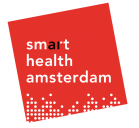
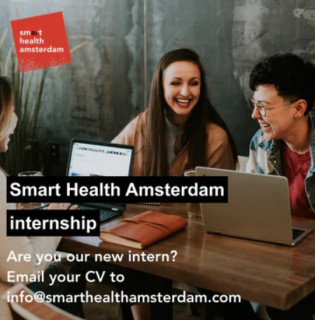
Looking for an internship where you can develop new skills in communications, marketing, PR and event management? Do you have an interest in how AI & data science can contribute to a healthier society and better medical care? Want to work as part of a fun and inspiring team?
As Amsterdam’s key network for data- and AI-driven innovation Smart Health Amsterdam (Gemeente Amsterdam & Amsterdam Economic Board) in #the #life #sciences and #health sector, we’re looking for an intern. Interested? Get in touch today.
https://smarthealthamsterdam.com/p/jobs-at--smart--health--amsterdam Smart
Accelerating circularity: monitoring tool geoFluxus helps cities turn company waste into value

Amsterdam 100% circular by 2050
The City of Amsterdam wants to be fully circular by 2050. That means that everything we use on a daily basis – from coffee cups to building materials – must consist of materials that have already had a previous life.
When it comes to household waste – this consists of, among others, vegetable, fruit and garden waste, paper, glass and textiles – the City has a duty to collect and process this. To give you an impression, the total household waste came down to about 380kg per year per person.
When comparing the amount of household versus company waste produced in the Amsterdam Metropolitan Area (AMA), still only 11% is household related, whereas 89% is company waste – such as sludge, scrap metals, wood and scrap lumber and very dedicated to the company processes related waste flows.
These company waste materials, as compared to consumer waste flows, often enter the waste flow in relatively good condition. This holds for instance for glass and wood, which are suitable for making window frames. If managed differently, these used materials in company 'waste' flows could be directly integrated at the start of the design process of new products.
So… How to boost the efficient re-use of company waste materials within the AMA?
geoFluxus: Turning data into comprehensible maps and graphs
With geoFluxus, incomprehensible waste data tables – including a.o. import and export and treatment methods – are converted into comprehensible maps and graphs. This is extremely valuable for spatial strategies in many other cities world-wide, and therefore TU Delft researchers Rusne Sileryte and Arnout Sabbe have founded the like-named spin off company geoFluxus, which has recently gone through a Arcadis City of 2030 Accelerator powered by Techstars.
Next to mapping waste, the geoFluxus team has connected open EU data on GHG emissions to the mapped waste flows by using transport, economic sector and waste treatment statistics. The resulting tool can provide governments with data evidence on what economic sectors, materials and locations hold the highest potential not only for waste reduction but also reductions of carbon emissions. Governments can use the tool to monitor progress towards circularity.
One company’s waste could be another one’s gain
The insights on the waste data generated by geoFluxus enable users to develop and test the impact of spatial strategies, for very specific locations, before actually implementing them. In addition, geoFluxus takes on a “match making” role: to have companies select company materials from other actors close by to re-use these instead of transporting the materials for waste treatment outside the AMA... Click on the link to read the full article >>
Sixty Minutes Back to the Future: Imagination and Urban Technology, Shaping the Smart City

Technology is everywhere: glued to other hands, integrated into our cars, or hidden behind garbage bins in your street. These technologies change the way we are in the world and experience it. For example, an urban walk is very different if you are efficiently using Google Maps to go from A to B, than if you are quietly strolling in the sunset. When was the last time that you got lost in the city or established a random conversation with a stranger while asking for directions? The introduction of technology in our cities disrupts how our society operates, calling for reflection and debate about the values that we hold important.
Building on insights from post-phenomenology, we reflect on the intricate nature of human-technology relations in the city, broadening it to a society-technology relation. Then, we reflect on how to turn these insights into practice. What do we need to not only reflect on and analyze past or current practices, but to foster our imagination and collective sense-making to take action towards inclusive and responsible practices? What role can design and futuring play in this?
In this lecture, Anouk Geenen and Julieta Matos-Castaño will employ an interdisciplinary approach to reflect on different theories and scholars that help us to create more responsible practices in our technological cities. Moving from Philosophy of Technology to Design Research, and bridging insights on issues and imagination, we follow a broad path of thinkers that broaden our horizon.
Data Dilemma’s: Sharing data for MaaS systems
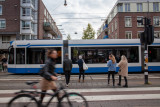
MISSED THE EVENT? CHECK OUT THE RECAP AND VIDEO HERE: https://amsterdamsmartcity.com/updates/news/check-out-the-recap-of-the-event-data-dilemmas-sharing-data-for-maas-systems
Mobility as a Service (MaaS) is about planning, booking and paying for all possible transport via apps. It enables carefree, integrated travel according to your own preferences. In MaaS apps, mobility such as buses, taxis, trains, metros, shared or rental bicycles and cars, charging stations, parking spaces and more, will be fully accessible. It helps users to get tailor made options varying by modality, time and costs to get from A to B. To get there, mobility providers have to collaborate. They have to share their data and work in a standardized system.
There’s not yet a fully operable MaaS system in the Amsterdam Metropolitan Area. This is mainly due to two reasons: there are a lot of different mobility parties in our region that collect data in various ways and are hesitant to share them. Besides the big amount of private parties, there are also a lot of (local) governments that have a say in the development of MaaS systems. To ensure a level playing field, these governments have to play an important role in setting up standards and uniform preconditions.
In some European cities, the situation is different and MaaS systems are running. What are their success factors? How did they convince private parties to share data to set up a MaaS system? How did governments reached an agreement on this? Which steps are the most difficult to implement? How are decisions for further development made?
Time to expand our horizon and learn from international best practices! During this session, Amsterdam Smart City, together with the Province of North-Holland and Datalab Amsterdam, are looking for answers and best practices from an international audience.
Join this session of Data Dilemmas on the 18th of February!
Program: Online event
Date: 18th of February 2021
Language: English
15.50: Digital walk-in
16.00 – 16.05: Introduction by Amsterdam Smart City & Datalab
16.05 – 16.10: Introduction to challenge by Province of North Holland
16.10 – 16.45: Presentations + Q&A
- Juan Corro, CIO EMT Madrid (public urban transport Madrid)
- Sami Sahala, ITS Chief Advisor, City of Helsinki & Forum Virium
- TBA
16.45 – 17.15: Plenary discussion and wrap-up
About the Data Dilemmas series
Mobility as a Service solutions show us that possibilities of using data and new technologies to address mobility challenges are endless. We use the data to make cities safer, cleaner and more accessible. But do we really need the data in all cases? What happens to all the data that is collected? Which choices did people make and why? Which dilemmas can be encountered? These questions are important for everyone; for governments, knowledge institutions, residents and companies. Amsterdam Smart City likes to explore with you which decisions are needed for responsible use of data. Data Dilemmas is a collaboration between Amsterdam Smart City and the City of Amsterdam’s Datalab.
Sign up:
Communication & events Internship at Smart Health Amsterdam
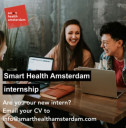
Looking for an internship where you can develop new skills in communications, marketing, PR and event management? Do you have an interest in how AI & data science can contribute to a healthier society and better medical care? Want to work as part of a fun and inspiring team?
As Amsterdam’s key network for data- and AI-driven innovation Smart Health Amsterdam (Gemeente Amsterdam & Amsterdam Economic Board) in #the #life #sciences and #health sector, we’re looking for an intern. Interested? Get in touch today.
Nieuw platform voor innovatieve ondernemers 👨💻 zoekt feedback. 👇

Ben jij een ondernemer en is het voor jou ook lastig om tot samenwerking met gemeentes te komen? Vind je de (inkoop)procedures ook complex? Denk je ook dat Tenderned makkelijker en duidelijker zou kunnen zijn? En heb je hier ideeën over? Dan zoekt de Gemeente Amsterdam jou! Met jouw hulp kunnen wij aan de slag om dit te veranderen.
Waarom dit platform?
De Gemeente Amsterdam werkt, samen met partners uit de regio, aan een platform voor innovatieve ondernemers met nieuwe business opportunities bij overheden. Voor de grote uitdagingen van de stad (bv mobiliteit, klimaatneutraal) zijn innovatieve oplossingen hard nodig. De gemeente kan dit niet alleen en zoekt partijen met goede ideeën en producten.
We horen vaak van kleinere ondernemingen dat het, door complexe procedures en ingewikkelde platforms, niet makkelijk is om tot een samenwerking met de gemeente te komen. Het nieuwe platform, https://www.innovatiepartners.nl, heeft als doel om het voor beide kanten makkelijker, eenvoudiger en duidelijker te maken.
Beta zoekt feedback
Onlangs is de beta versie gelanceerd. Voor nu nog even met 1 project maar er komen binnenkort nieuwe projecten bij. Het komende jaar gaan we verder en jouw feedback helpt ons!
Wat vind jij goed aan het platform? Waar zie jij ruimte voor verbetering? Heb je nog andere goede ideeën wat we met dit platform zouden kunnen bereiken? We horen graag van je! Je kunt je reactie achterlaten in dit feedback formulier.
🙏🙏🙏
(PS: dit keer wel met een link die werkt 😄)
De staat van het internet 2021: Inclusieve AI
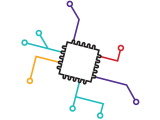
Elk jaar steken we de peilstok in het internet. Dit jaar onderzoeken we algoritmisch onrecht en andere potentiële gevaren van slimme en zelflerende systemen. Wie zitten er aan de knoppen? Wie ontwerpt de knoppen? En hoe zorgen we dat de veelgebruikte systemen voor iedereen even goed werken?
Hoofdspreker van De staat van het internet 2021 is Sennay Ghebreab, neuro-informaticus en professor aan de Universiteit van Amsterdam. 'Discriminerende algoritmes versterken de groeiende ongelijkheid in de samenleving,' waarschuwde hij eerder in een interview met OneWorld.
'Discriminerende algoritmes versterken de groeiende ongelijkheid in de samenleving.'
Het evenement vindt online plaats op vrijdag 29 januari om 16:00, is Nederlandstalig en gratis toegankelijk.
AI is niet neutraal
We weten het al langer: technologie is niet neutraal. Het is een vertaling van cultuur, wereldbeeld en politieke overtuiging. Vooroordelen, ongelijkheden en racisme zitten in technologie ingebakken. Het is de vraag welke ethische waarden als uitgangspunt worden gebruikt in de ontwerpen. Op verschillende niveaus kunnen er aannames in de systemen verwerkt worden, die daarna veelal niet goed traceerbaar zijn. Dus ook fouten, of bevooroordeelde aannames worden zo op grote schaal herhaald en bevestigd.
Het is vaak ondoorzichtig wat er precies ‘onder de motorkap’ van zelflerende technologie gebeurt, laat staan wie er verantwoordelijkheid draagt. Daarom is het evidenter en urgenter dan ooit om kritische vragen te blijven stellen bij het ontwikkelen en beoordelen van zelflerende technologie.
Tijdens deze editie van De staat van het internet gaan we in gesprek met een aantal experts over (on)verantwoorde algoritmes. Wat zijn de gevolgen voor de mensen waartegen AI bevooroordeeld (biased) is, wat is een wenselijk toekomstperspectief, en welke acties zijn er nodig?
Het programma bestaat uit een keynote van Sennay Ghebreab en een discussie met panelleden uit de politiek, wetenschappelijk onderzoek en wetgeving.
In aanloop naar de Staat van het Internet 2021 kun je nu alvast de documentaire Coded Bias bekijken.
Over De staat van het internet
Op 15 januari 2019 trapten we af met de eerste editie van De Staat van het Internet. Sindsdien staan we jaarlijks stil bij het moment waarop voor Amsterdam het internet als publiek domein toegankelijk werd. Op 15 januari 2021 is het inmiddels 27 jaar geleden dat de Digitale Stad haar deuren opende en het internet publiek toegankelijk werd. Tijdens de eerste editie in 2019 verzorgde hoogleraar media en digitale samenleving (Universiteit Utrecht) José van Dijck de lezing, waarin ze inzoomde op de rol van platforms in onze publieke ruimte. Vorig jaar ging Jaap-Henk Hoepman, expert op het gebied van privacy by design, in op onze digitale identiteit.
Kijk hier de lezingen terug van 2019 en 2020.
De Staat van het internet wordt mede mogelijk gemaakt door SIDN en de Universiteit van Amsterdam. Via het SIDN fonds steunt SIDN veel projecten die AI op een verantwoorde manier inzetten. Zie hier een overzicht.
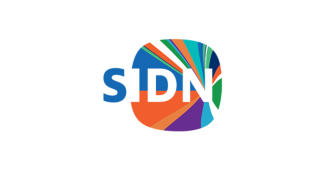
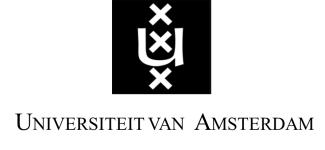
Branchevereniging ICT en Telecommunicatie Grootgebruikers (BTG) is partner van Amsterdam Smart City
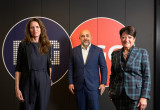
Branchevereniging ICT en Telecommunicatie Grootgebruikers (BTG) sluit zich als Associate Partner aan bij Amsterdam Smart City. Dit betekent dat we onze netwerken aan elkaar verbinden, relevante verbindingen leggen en gezamenlijke events organiseren. BTG is ook lid geworden van de Network Council van de Amsterdam Economic Board.
“Bij het netwerk van Amsterdam Smart City gaat het om het maatschappelijk waardevol inzetten van technologie. Publieke waarde creëren, en technologie inzetten vanuit een menselijk perspectief. Met BTG delen we deze doelstelling en hebben we een gedeeld, maar zeker ook aanvullend netwerk. Hiermee kunnen we elkaar versterken en samen nog meer waarde aan onze maatschappij toevoegen”, aldus Leonie van den Beuken, programma directeur Amsterdam Smart City.
“De digitalisering verandert onze wereld razendsnel; met COVID-19 en de uitrol van 5G als recente aanjagers. BTG zet vol in op deze digitale versnelling samen met haar Solution Partners en Leden. Op deze wijze wordt de leefbaarheid in steden en regio’s verhoogd. Nieuwe innovaties in het smart domein staan hoog op de agenda bij BTG door de inzet van de diverse Expertgroepen op het vlak van IoT, 5G, AI, Security, Smart Society etc. De verkregen best practices worden door BTG ingezet bij het Amsterdam Smart City netwerk. Co-creatie en complementaire
werking, pur sang,” aldus Petra Claessen, CEO BTG/TGG.
Het partnership heeft al geleid tot het gezamenlijk organiseren van twee events in november vorig jaar. Onder de noemer ‘De mindset voor een menselijke slimme stad’ en ‘Hoe kan 5G bijdragen aan verduurzaming van steden?’ hebben we twee bijeenkomsten georganiseerd waarin we met belangrijke stakeholders in gesprek zijn gegaan over de vragen 'Hoe creëren we duurzame en leefbare steden?' 'Hoe kan technologie hierin een nuttig middel zijn?' 'Hoe zetten we mensen centraal in deze steden en nemen we hun waarden mee in de ontwikkeling?'
Bekijk hier de Highlights van beide events.
Belijk hier een verslag van ‘De mindset voor een menselijke slimme stad’
Metropolitan Mobility Podcast: De stad slimmer en schoner van goederen voorzien?
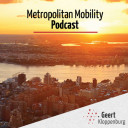
In deze podcast gaat Geert Kloppenburg in gesprek met Walther Ploos van Amstel en Carin ten Hage over digitale voorwaarden voor gezonde stadslogistiek. Luister hier de podcast: http://bit.ly/38ASVZ
Future Fitness Garden
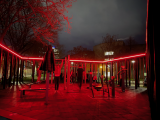
Getting fit and healthy again in 2021? Since the citywide lockdown, members of local sport-clubs have been forced outdoors. One of the most popular (outdoor) fitness areas on the Amsterdam waterfront has been the Marineterrein. In our latest project “Future Fitness Garden” we explore how smart lighting can remind us of safe distancing and capacity in public space during Corona.
Using algorithms we can anonymously detect proximity and density of people working out. For example if they come within 1,5 meters to one another the LED strips turn BLUE. If there are too many people occupying the area the LED will turn RED. This system gently reminds guests to respect each other’s space while sharing the future fitness garden.
Thanks to project partners Marineterrein Amsterdam. Compliments to AI genius Markus Pfundstein, Electrical Mechanical Wizard Werner Pfundstein
Digitale transformatie blijft kwestie van mensenwerk

De afgelopen paar jaar dook een term steevast op in bestuurskamers, managementartikelen en -boeken: digitale transformatie. Vaak werd dat in een technologische context geplaatst. Toch blijft het digitaliseren van (bedrijfs)processen, diensten en producten voor een groot deel mensenwerk, zegt Menno Lanting, expert op het gebied van de impact van de snel veranderende wereld op innovatie, organisaties en leiderschap. Hij sprak met Frenk Storm, sales director bij Eurofiber Nederland, over de rol van de mens in het speelveld van digitale transformatie.
Knowledge Quest: Submit Your Example of a Great High Density Environment

Do you know a great example of high density living environments built within the last 30 years? Share your knowledge and contribute to the creation of an open repository via Crowd Creation. To be truly exemplary, the area should include a mixture of functions (at least some of them high-rise) where the physical fabric retains a human scale at street level despite the high density.
You may wonder who's asking for and compiling this information: the Chair of Spatial Urban Transformation at the Amsterdam University of Applied Sciences is committed to building an open-access repository. Sharing best practices across the globe is becoming increasingly vital, especially as many of our western cities are on the eve of unprecedented densification. As a humble thank you for helping to guide this societal challenge, they've allotted 12 rewards for contributors. Click here to submit a project.
Societal Context
Like many of our Western cities, Amsterdam is on the brink of intensive urban densification. The metropolitan area of Amsterdam plans to add 100,000 new dwellings, mostly within the existing urban fabric. Compact studio apartments and new situational typologies of high-rises are part of the program, which will increase the densification even further. How are we to retain a human scale in these new high-density environments, especially at the street level where our social fabric is shaped? This calls for a new array of examples and precedent studies of successful existing "Great High Density Environments." What are their design properties and how are they programmed? How do they succeed in retaining a human scale?
 Amsterdam - Image Courtesy of Amsterdam University of Applied Sciences
Amsterdam - Image Courtesy of Amsterdam University of Applied Sciences
Sensing Streetscapes Project
These questions are central to the Sensing Streetscapes Project initiated by the Chair of Spatial Urban Transformation at the Amsterdam University of Applied Sciences (AUAS). In a consortium of spatial design offices and clients of large scale projects, action research is explored along three lines. First, building on the classic works of Allan Jacobs, Jan Gehl and the like, six of the most-used reference locations for these new environments are deconstructed by research through design. Second, neuro-architectural technologies (eye-trackers) are deployed to uncover the visual impact of the applied design principles: What are the patterns? Do these design solutions indeed mitigate the high density and intensity to a human scale on the level of the streetscape? Finally, an algorithm is developed to trace the most suitable best practices via AI. That’s where you come in.
 Cassilis Road, London - Image Courtesy of Amsterdam University of Applied Sciences
Cassilis Road, London - Image Courtesy of Amsterdam University of Applied Sciences
Repository of Great Examples by Crowd Creation
Some high profile examples of great high density environments are well known, like in Vancouver, Toronto, London, Manchester, Amsterdam, Hamburg, and Manhattan. Yet what lesser-known examples of Great High Density Living Environments are out there for us to learn from? Share your knowledge and contribute to the creation of an open repository via Crowd Creation.
In order to frame the search, a list of desired characteristics:
- Residential environment in an inner city area
- Built within the last 30 years – or about to be 'opened' soon
- Built for High Density with some high-rise buildings
- Success in creating a human scale at eye-level on the street
- Some level of mixed functions, green design, etc. - anything that increases the livability of the environment
Click here to submit a project.
 Hardman Street, Manchester - Image Courtesy of Amsterdam University of Applied Sciences
Hardman Street, Manchester - Image Courtesy of Amsterdam University of Applied Sciences
You are, of course, allowed to offer one of your own projects as an example. The deadline for submissions is January 29th, 2021 and as a modest gesture of thanks for helping address this societal challenge, 12 rewards are available to contributors. Out of the projects that fit the characteristics, consortium members will select the contributors who delivered either multiple great examples, surprisingly interesting examples, or in-depth descriptions and pictures. 12 entrants will be randomly selected to be rewarded:
- 2 will receive personalized book selections on this topic (favorites of the Chair)
- 6 will receive an Amazon gift card with a value of €50
- 4 will receive a ticket to the Media Architecture Biennale 2021
- Winners will be notified personally
Visit the results at https://sensingstreetscapes.com. The website will remain open afterwards, so feel free to keep sending your examples!
Check the recording of our event 'Data Dilemmas: Digital twins - hype or necessity?'

With the growing availability of data and technology, digital versions of objects or systems are getting more interesting. Pairing the virtual and physical world, it is possible to continue critical physical processes while digitally experimenting and looking for improvements. The ‘digital twin’ therefore is an interesting feature, also in urban development.
In a discussion with a number of digital twin projects, we addressed opportunities and barriers. Are current projects more than 3D models? What are the key enablers and challenges in starting digital twins for urban applications? Which steps are the most difficult to implement? Do we fully trust on the system and will reality be handled by a computer? How are decisions for further development made?
Speakers:
- Wietse Balster - geo information advisor at City of Amsterdam
- Eric Jeansson - project manager at City of Gothenburg
- Paolo Pileggi - IT program developer & Walter Lohman - project lead at TNO
Moderator:
- Leonie van den Beuken - program director Amsterdam Smart City
Catch the presentations here:
Event report: State of the Region AMA

The ambition is clear: the Amsterdam Metropolitan Area must become a high-class region. How? ‘Only together'
Launch Responsible Sensing Lab & Opening of Exhibit 'Senses of Amsterdam'

On January 28, we will officially launch the Responsible Sensing Lab during an interactive online event. This event also marks the opening of ‘Senses of Amsterdam’ at NEMO Studio: an exhibit about the sensors in the city.
To celebrate this, we would like to invite you to join the interactive Livestream of this event. In several online workshops we will talk about what responsible sensing means, and discuss what should be done to design a better, more democratic, and more responsible digital future city.
Our keynote speaker Anthony Townsend will discuss the current state of Smart Cities through a Livestream from the US. Deputy Mayor Touria Meliani will close the program with the official (virtual) opening of the exhibit.
Anthony Townsend is a writer and researcher whose work lies at the intersection of urbanization and digital technology. Anthony will give a keynote called From Parasite to Symbiant: Redesigning Our Relationship With Urban Sensors.
Deputy Mayor Touria Meliani is responsible for Arts and Culture, and Digital City, for the City of Amsterdam. Meliani will officially open the Exhibition 'Senses of Amsterdam' on display at the NEMO de Studio.
Program
14:50 Virtual walk-in workshop groups
15:00 WORKSHOPS
A. Designing Citizen Interactions for Urban Sensing Systems
| Kars Alfrink | TU Delft, Researcher, Designer and PhD candidate Industrial Design
| Marcel Schouwenaar | The Incredible Machine, Designer and Creative director
B. Designing Checks and Balances for Urban Surveillance
| Aafke Fraaije | VU Amsterdam, Researcher and PhD Candidate
| Surbhi Agrawal | AMS Institute & RSL, Urbanist and Research Assistant
C. Sensor data
| Anne-Maartje Douqué | City of Amsterdam, CIO Office, Advisor Personal Data
| Beryl Dreijer | City of Amsterdam, CTO Office, Privacy Officer
D. Responsible Crowd Sensing Toolkit
| Tom van Arman | CITIXL, Urban Innovator
| Paul Manwaring | CITIXL, Urban Innovator
15:50 Closing workshops
16:00 LIVESTREAM EVENT FROM NEMO STUDIO
| Moderator | Derisee Hoving
16.10 KEYNOTE
From Parasite to Symbiant: Redesigning Our Relationship With Urban Sensors
| Anthony M. Townsend | Writer and Researcher
16:30 TALKSHOW
Responsible Sensing Lab
| Thijs Turel | AMS Institute, Program Manager Responsible Digitization
| Coen Bergman | City of Amsterdam, CTO, Innovation Developer Public Tech
16:55 PANEL DISCUSSION
Influence of Corona on surveillance in Amsterdam
| Beryl Dreijer | City of Amsterdam, CTO Office, Privacy Officer
| Judith Veenkamp | Waag, Head of Smart Citizens Lab
| Prof dr. Gerd Kortuem | TU Delft & AMS Institute, Professor of Internet of Things
17:15 INTERVIEW
Responsible Sensing Lab & Smart Cities
| Deputy Mayor Meliani | Responsible for Arts and Culture, and Digital City
17:25 EXHIBIT OPENING
'Senses of Amsterdam' with a virtual tour
| Deputy Mayor Meliani | Responsible for Arts and Culture, and Digital City
17:30 Closing
Register here
It is both possible to join the program at 15.00h for the workshops, or at 16.00h for the rest of the program. Please let us know which part(s) of the program you will be joining by clicking here.
More information on the workshops can be found in the registration link.
You will receive a link to the Livestream a day in advance.
Senses of Amsterdam
In 'Sense of Amsterdam' you can discover how sensors make Amsterdam a Smarter city. This interactive installation at NEMO Studio is about the sensors we use in our city. What measurements are taken and how is data collected? The installation informs about the sensors in Amsterdam and how these sensors make the city smarter. You will be challenged to think along with them, and how we can make their use more 'responsible'.
The installation is a collaboration of AMS Institute, City of Amsterdam and NEMO, and is part of the program Responsible Sensing Lab.
Responsible Sensing Lab
This lab explores how to integrate social values in the design of sensing systems in public space. It is a testbed for conducting rigorous, transparent, and replicable research on how smart technologies placed in public space can be designed in a way that makes the digital city ‘responsible’. The Responsible Sensing Lab (RSL) is a collaboration of AMS Institute and the Digital City program of the City of Amsterdam. More information here.
Business transformation through IoT
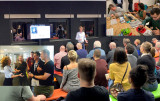
Every 3th Wednesday, the Sensemakers Amsterdam community invites interesting speakers, this evening ao:
Boban Vukicevic is a startup mentor, supervisory board member digital transformation and university lecturer Smart Services (Internet of Things for Business) at Open University where he shares his insights on the conditions necessary for a successful IoT implementation and the associated digital transformation of a company. The highlights will be shared with us in this talk!
HackNotCrime & Robotic Wearables

Every 3th Wednesday SensemakersAMS invites interesting speakers, this evening:
- Jilles Groenendijk, hardware hacker, on the importance of hacking your hardware before using it!
- Designer and Innovator Anouk Wipprecht is working in the emerging field of "FashionTech"; a rare combination of fashion design combined with engineering, science and interaction/user experience design. Producing impressive robotic wearables with systems around the body that tend towards artificial intelligence, like her Intel-Edison based spider dress.
In this talk she will share some of her projects and the way she approaches the technical and design challenges.
Stay up to date
Get notified about new updates, opportunities or events that match your interests.

